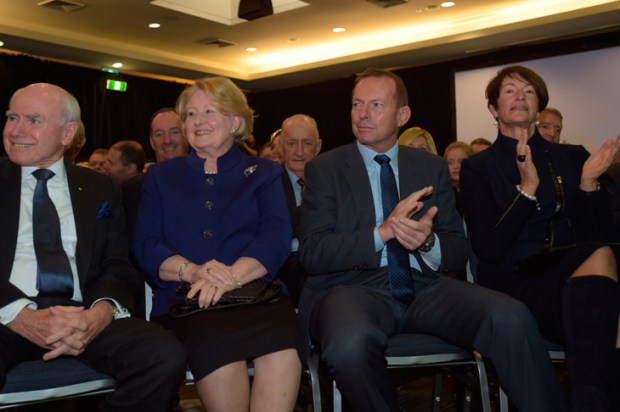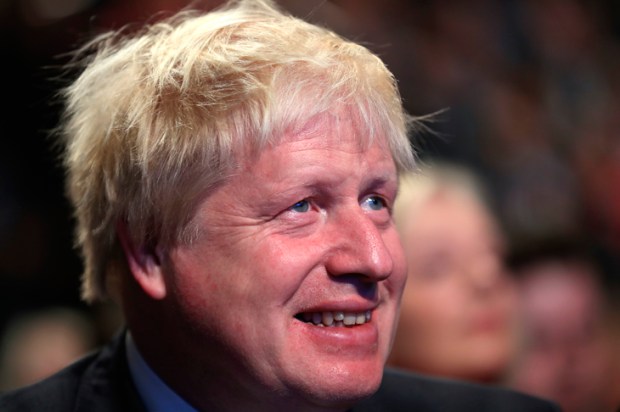Saving scientists, bureaucrats & the Great Barrier Reef
Did you know that Christine Milne was Vice President of the International Union for Conservation of Nature? And that the IUCN advises the World Heritage Committee on Australia’s management of the Great Barrier Reef? And that the Committee is waging war with Australia over maintaining the GBR’s status? Australia convinced the World Heritage Committee in 1981 to have the GBR listed as World Heritage. It seemed like a good idea at the time. The GBR Marine Park Authority, which ‘administers’ the Reef, has prospered in this period. It costs more than $50 million a year to run. The Abbott government boasts ‘projected investment’ in the coming decade for ‘research and management activities’ in the Reef area is more than $2 billion. The World Conservation Union has 200 government and 1,000 non-governmental organisations members. The Union is a $113 million per year operation. It has 1,000 staff in 45 offices around the world. But the money does not come from NGO activists or their supporters. It comes from taxpayers. About 74 per cent of its income comes from government and from ‘multilateral’, aka government agencies, which are funded by the taxpayers of member nations. In a normal world (or organisation), those who pay the wages get the votes. Not so with the Union. NGOs have voting rights the equal of any other member, including big-funding nations. That is how Milne became an office holder. In 2011, for the first time, the Union was subject to external review of its relevance and effectiveness. The review undertook surveys of its members, but these scored less than a 30 per cent response rate. How relevant is that? The review concluded that the Union had no ‘explicit Theory of Change’, which is a fancy way of saying that it does not know what it is doing. But we know why it exists, to act as a lobbyist for green NGOs against governments. The Reef is bigger than the UK, Holland and Switzerland combined, stretching more than 2,300 kilometres. There are, we are breathlessly informed by NGOs and scientists, three distinct ‘threats’ to the Reef: climate change, runoff and dumping. Climate change, if it is real, is not something Australia, or indeed the world, can solve. Those responsible for managing the Reef have no role to play in the NGO campaign to stop coal. To the extent that it degrades water quality on the Reef, runoff continues to improve. The estimated annual average pesticide load has been reduced by 28 per cent, sediment by 11 per cent, total nitrogen load by 10 per cent and dissolved inorganic nitrogen by 16 per cent compared to 2009. As for dumping associated with coal and other extractive industries, the Australian government is placing a permanent ban on disposal of material in the GBR Marine Park from capital dredging projects. The Queensland government will extend the ban on disposal of port-related capital dredge material to the remainder of the World Heritage Area, and will also legislate to restrict capital dredging for the development of new or expansion of existing port facilities, and prohibit the sea-based disposal of dredge material in the GBR World Heritage Area. It could be argued that none of these limitations would have been possible without the Union, and the Greens. But, then again, the Australian taxpayer may well have got there all by themselves. As our economies become cleaner, being Green gets more expensive.
Vale Peter Walsh
Peter Walsh loved Chardonnay and hated socialists. The latter included rural, capitalist and union varieties, indeed, any rent-seekers. But he saved his best venom for greenies. He was my perfect Labor man. I first met Peter when he was a Senator, and I was working for the ALP National Secretariat, circa 1978. I last met him two years ago for luncheon at his local Chinese in suburban Perth, courtesy of our mutual friend Chris Ulyatt. As he struggled back to his car, it was clear that he was, literally, on his last legs. His valedictory speech, 27 May 1993, is a good account of his political life. He maintained the rage over the dismissal of Whitlam, preferring the people to have removed Whitlam at an election. ‘But in 1975 the Opposition just could not wait. No lie was too big, no tactic was too sleazy, no risk, including the risk of civil disorder, was too great if it facilitated the return of what it regarded as its birthright.’ He detested Garfield Barwick of whom he said, ‘neither the role played by Barwick in 1975 nor his assorted other villainies [detailed in Hansard] have been adequately dealt with.’ He was justly proud of his five years as Finance Minister. ‘For the first time ever, the Commonwealth Budget was in surplus… the needs of the poor, of the lowest quintile, were more effectively addressed than ever before.’ He railed at greens. ‘All we need, according to them, is ‘green’ jobs … [They] are too ignorant to understand – or too dishonest to acknowledge – that the quid pro quo for these green jobs is a big fall in real wages.’ And the ALP. ‘Does anyone believe that Ben Chifley would have closed down mines and banned exploration in a sequence of highly prospective mineral provinces, not for any serious environmental reason but to appease the secular religious sanctimony of Balmain Basket weavers?’
Good on you Walshie, a hand well played.
Got something to add? Join the discussion and comment below.
Get 10 issues for just $10
Subscribe to The Spectator Australia today for the next 10 magazine issues, plus full online access, for just $10.
You might disagree with half of it, but you’ll enjoy reading all of it. Try your first month for free, then just $2 a week for the remainder of your first year.













Comments
Don't miss out
Join the conversation with other Spectator Australia readers. Subscribe to leave a comment.
SUBSCRIBEAlready a subscriber? Log in